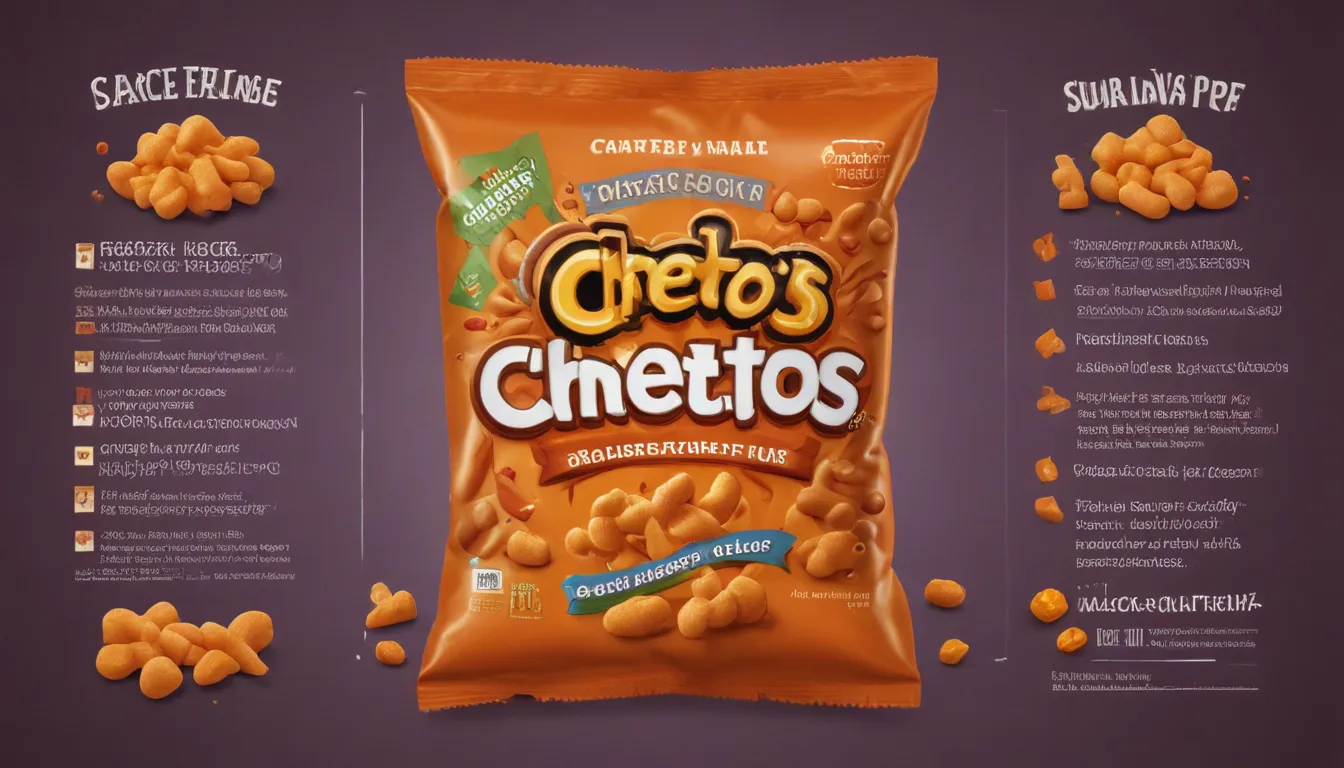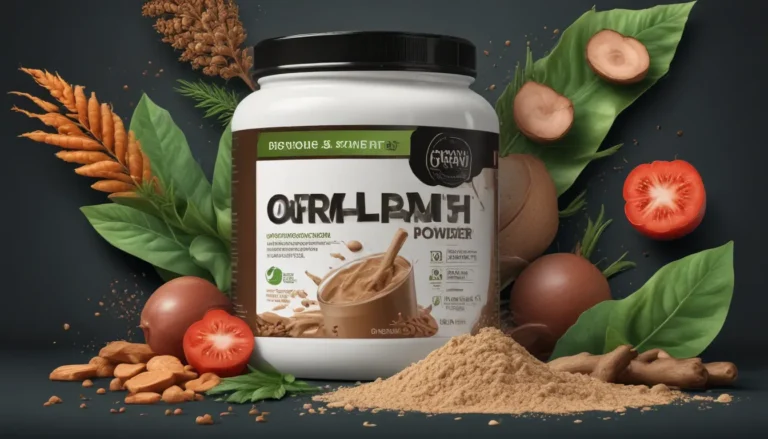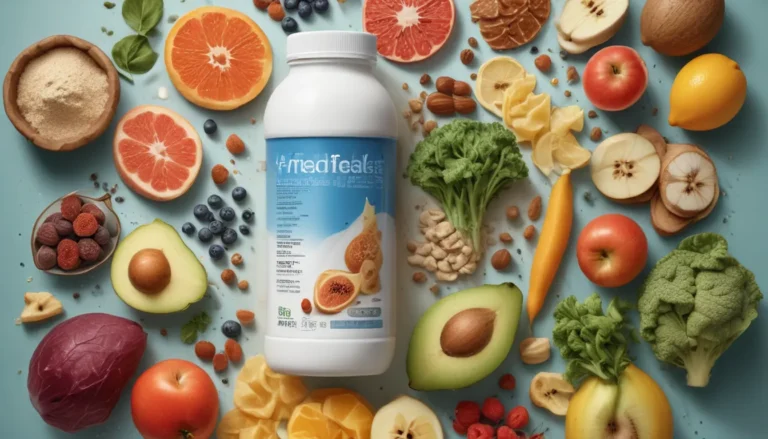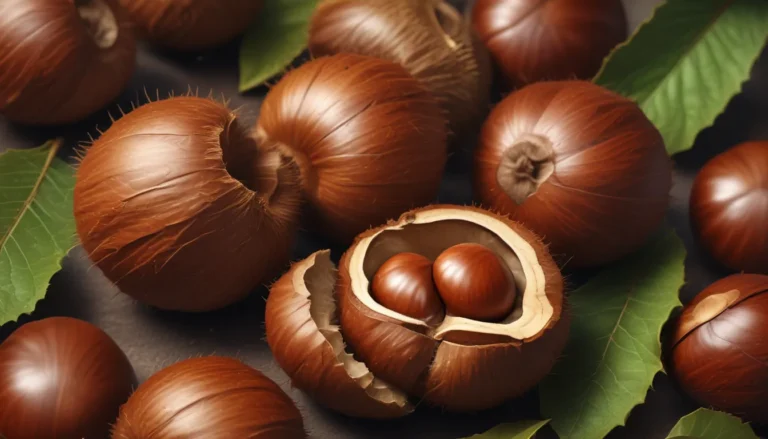The pictures in our articles might not always show exactly what the text is talking about. We use these images to make the article more interesting and eye-catching. They are there to add to the text, but not to replace it or show every detail.
Welcome to our ultimate guide to the nutrition facts of Cheetos Cheese Puffs! Whether you're a fan of these cheesy snacks for a quick afternoon pick-me-up or a party treat, it's essential to understand their nutritional content. In this article, we will explore the calorie content, fat and carbohydrate composition, protein content, and key nutrients found in Cheetos Cheese Puffs. We'll also discuss portion sizes and tips on how to incorporate this beloved snack into a balanced diet. So, grab a handful of Cheetos Cheese Puffs, relax, and let's dive into the nutritional breakdown of this iconic snack!
Key Takeaways:
- Cheetos Cheese Puffs contain 150 calories per serving, making them a delicious but indulgent treat to enjoy in moderation.
- These cheesy snacks are a good source of Vitamin A and calcium, but it's vital to balance them with a well-rounded diet for overall nutrition.
Nutritional Facts:
Calories
- One serving of Cheetos Cheese Puffs (about 28 grams) contains approximately 150 calories.
Total Fat
- The same serving size of Cheetos Cheese Puffs has around 10 grams of total fat.
Saturated Fat
- In a 28-gram serving, you'll find about 1.5 grams of saturated fat.
Trans Fat
- Cheetos Cheese Puffs do not contain any trans fat.
Cholesterol
- There is no cholesterol in Cheetos Cheese Puffs.
Sodium
- A single serving of these cheesy snacks contains approximately 250 milligrams of sodium.
Total Carbohydrates
- Cheetos Cheese Puffs have around 15 grams of total carbohydrates per serving.
Dietary Fiber
- In each serving, you'll find less than 1 gram of dietary fiber.
Sugars
- Cheetos Cheese Puffs contain less than 1 gram of sugar.
Protein
- Each serving size of Cheetos Cheese Puffs contains approximately 2 grams of protein.
Key Nutrients:
- Vitamin A: These cheesy snacks are a good source of Vitamin A, providing about 8% of the recommended daily intake.
- Calcium: Cheetos Cheese Puffs also contain calcium, contributing around 4% of the recommended daily intake.
- Iron: Iron can be found in Cheetos Cheese Puffs, with each serving providing about 2% of the recommended daily intake.
- Vitamin C: A small amount of Vitamin C, approximately 2% of the recommended daily intake, can be found in each serving of Cheetos Cheese Puffs.
- Vitamin E: Cheetos Cheese Puffs contain about 2% of the recommended daily intake of Vitamin E per serving.
- Other Vitamins: Thiamin, riboflavin, niacin, and folate are also present in Cheetos Cheese Puffs, providing around 2% of the recommended daily intake for each nutrient.
Next time you indulge in a bag of Cheetos Cheese Puffs, keep these nutritional facts in mind. While they're a tasty treat, moderation is key. Pair them with healthier choices like fruits and vegetables to maintain a balanced diet and overall well-being.
Conclusion
Understanding the nutrition facts of Cheetos Cheese Puffs is crucial for making informed decisions about your snack choices. While these cheesy snacks are delicious, they are high in calories, sodium, saturated fat, and artificial ingredients. Enjoy them in moderation and balance them with nutritious options to support your health. Remember to read food labels and choose snacks wisely to maintain a healthy lifestyle.
FAQs:
- How many calories are in a serving of Cheetos Cheese Puffs?
-
A serving of Cheetos Cheese Puffs, which is about 21 pieces (28 grams), contains approximately 160 calories.
-
Are Cheetos Cheese Puffs suitable for vegetarians?
-
Yes, Cheetos Cheese Puffs are suitable for vegetarians as they do not contain any meat products.
-
Can Cheetos Cheese Puffs be part of a gluten-free diet?
-
No, Cheetos Cheese Puffs contain wheat flour and are not gluten-free. Those following a gluten-free diet should choose alternative snacks.
-
Are there any allergens in Cheetos Cheese Puffs?
-
Cheetos Cheese Puffs contain milk and may also contain soy. Individuals with dairy or soy allergies should avoid consuming them.
-
Are Cheetos Cheese Puffs a healthy snack option?
-
Cheetos Cheese Puffs are not considered a healthy snack due to their high calorie, sodium, and saturated fat content. Enjoy them in moderation.
-
Can Cheetos Cheese Puffs be part of a balanced diet?
-
Yes, Cheetos Cheese Puffs can be enjoyed as part of a balanced diet when paired with nutritious options like fruits, vegetables, and whole grains.
-
Are there healthier alternatives to Cheetos Cheese Puffs?
-
Yes, opt for alternatives like air-popped popcorn, veggie chips, or homemade snacks made from whole foods for a healthier choice.
-
What should I do if I consume Cheetos Cheese Puffs excessively?
- If you find yourself overindulging in Cheetos Cheese Puffs, reassess your snacking habits and incorporate healthier options into your diet. Seeking guidance from a healthcare professional or nutritionist can also be beneficial.
We strive to provide accurate and engaging content to empower you to make informed choices about your nutrition. Trust in our commitment to quality and authenticity as you explore and learn with us. Enjoy your snacks mindfully and maintain a balanced approach to your diet and overall well-being.





